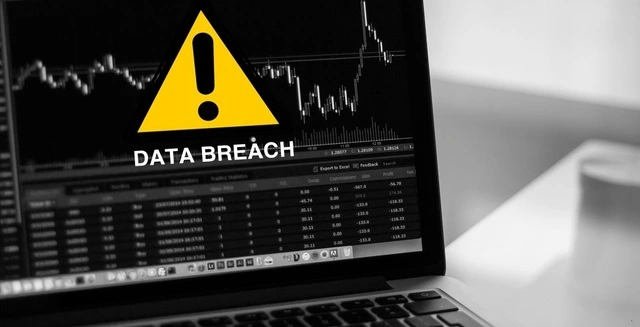In the contemporary digital world, data breaches are becoming a bigger and more regular concern. Unauthorized access to, exposure to, or theft of private financial information, personal information, or corporate information can have disastrous consequences. This blog will go over what defines a data breach, how it impacts individuals and businesses, and how to stop it.
What Is a Data Breach?
A data breach is an unauthorized access, disclosure, or retrieval of sensitive, confidential, or protected information. This can occur when cybercriminals infiltrate systems to steal data such as personal details, financial information, or intellectual property. Data breaches can happen due to weak security measures, phishing attacks, malware, or even insider threats.
The consequences of a data breach can be severe, leading to financial losses, reputational damage, legal penalties, and a loss of trust among customers or stakeholders. Organizations must take proactive steps to prevent breaches, such as implementing robust cybersecurity practices, regularly updating software, educating employees on security awareness, and encrypting sensitive data.
What Does a Data Breach Mean for Individuals?
An individual may become the victim of identity theft as a result of a data breach when criminals use stolen information to commit fraud. This could lead to money loss, unauthorized transactions, and long-term consequences on credit ratings. Furthermore, because malicious individuals may be able to obtain private information, privacy violations can be unsettling.
What Does a Data Breach Mean for Organizations?
Organizations have numerous challenges when attempting to respond to a data breach. Reputational damage is often the most obvious impact of customers losing faith in the company. Legal and regulatory ramifications, such as fines and lawsuits, might also occur. Furthermore, operational glitches could occur and necessitate a costly recovery process.
How Do Data Breaches Occur?
Data breaches can occur in several ways, including through hacking and cyberattacks. Cybercriminals use sophisticated techniques to breach networks and obtain sensitive data. Because contractors or employees may inadvertently or purposely cause breaches, insider threats are also an issue. Lax security practices, such as incorrect password management or unpatched software, can also lead to system breaches.
How to Protect Yourself from Data Breaches
To guard against data breaches, one must be alert and take preventative action. Start with safe password creation processes, ensuring that the passwords for each account are unique, and change them often. To further secure your accounts, enable two-factor authentication (2FA) whenever possible. Pay particular attention to any strange activity on your financial accounts and credit reports. Finally, consider using data encryption to protect critical information.
How to Protect Your Organization from Data Breaches
Organizations can protect themselves by funding employee training and ensuring that every employee is informed on cybersecurity best practices. Regular security audits are required to identify and fix vulnerabilities in the system. Having an incident response plan in place can help the business respond to security breaches faster if they do occur. Ultimately, a substantial investment in dependable cybersecurity technologies such as firewalls, anti-malware software, and encryption techniques can give an additional layer of protection.
Conclusion
In today's digital environment, data breaches pose a major risk to both individuals and organizations. It is essential to comprehend data breaches, how they happen, and how to prevent them. You may lower your chances of becoming a victim of a data breach and protect your private data by being proactive. Check out our new blog "Understanding Data Breaches: How On Wave Group is Your Shield Against Cyber Threats"
FAQs
What is a data breach?
A data breach is the unauthorized access, exposure, or theft of sensitive information, often resulting in identity theft, financial loss, and privacy concerns.
How do data breaches happen?
Data breaches can occur through hacking, insider threats, or weak security practices such as poor password management and unpatched software.
What should I do if I think my data has been breached?
If you suspect your data has been breached, immediately change your passwords, monitor your financial statements, and consider placing a fraud alert on your credit reports.
Can I prevent a data breach?
While you can't completely prevent a data breach, you can reduce the risk by using strong passwords, enabling two-factor authentication, and regularly monitoring your accounts.
What are the long-term effects of a data breach?
The long-term effects of a data breach can include identity theft, financial loss, damage to credit scores, and a loss of trust in affected organizations.

